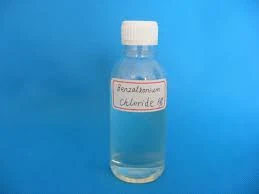water flocculant
Understanding Water Flocculants Importance and Applications
Water flocculants are specialized chemical agents used to enhance the process of coagulation and flocculation in water treatment systems. They play a crucial role in the aggregation of fine suspended particles, which leads to the formation of larger clusters or flocs. This process significantly improves the clarity and quality of water, making it suitable for various applications such as drinking water purification, wastewater treatment, and industrial processes.
Understanding Water Flocculants Importance and Applications
Water flocculants can be classified into two main categories organic and inorganic. Organic flocculants are typically derived from natural sources or synthetic polymers. They are widely used because of their effectiveness at low concentrations and their ability to target specific particle sizes. Some common organic flocculants include polyacrylamides and chitosan. On the other hand, inorganic flocculants, such as aluminum sulfate and ferric chloride, work by neutralizing the charge of suspended particles, promoting their aggregation.
water flocculant

The selection of an appropriate flocculant depends on a variety of factors, including the nature of the suspended particles, the desired water quality, and the specific application. For instance, drinking water treatment often requires flocculants that do not introduce harmful substances into the water, while industrial applications may prioritize cost-effectiveness and efficiency over the purity of the flocculant.
In addition to water treatment, flocculants are widely used in other industries such as mining, paper manufacturing, and oil recovery. In mining, flocculants help in separating valuable minerals from waste materials, reducing environmental impact and improving resource extraction efficiency. In the paper industry, they enhance the production process by facilitating the removal of contaminants from pulp. Furthermore, in oil recovery processes, flocculants aid in the separation of oil from water, ensuring a more sustainable approach to resource utilization.
The application of water flocculants is not without challenges. Depending on the dosage and type of flocculant used, there can be potential side effects such as the generation of sludge, which requires further treatment and disposal. Moreover, improper use of flocculants can lead to the re-suspension of particles, counteracting the intended benefits. Therefore, careful monitoring and optimization of flocculant use are essential to ensure effective performance while minimizing negative impacts.
In conclusion, water flocculants are vital components of modern water treatment processes, providing significant benefits in terms of water quality and environmental protection. With advancements in technology, the development of more efficient and eco-friendly flocculants is paving the way for more sustainable practices across various industries. As the demand for clean water continues to rise globally, the importance of understanding and effectively utilizing water flocculants cannot be overstated. Their role in enhancing water treatment processes makes them indispensable in our quest for cleaner and safer water resources.
-
Pbtc Scale InhibitorPBTC: A Scale Protector for Industrial Water TreatmentNewsAug.05,2025
-
Organic Phosphonate: An Efficient Defender in the Field of Scale InhibitionNewsAug.05,2025
-
Hydrolyzed Polymaleic Anhydride: Green Pioneer in Scale Inhibition FieldNewsAug.05,2025
-
PAPEMP Polyamino Polyether Methylene Phosphonic Acid For SaleNewsAug.05,2025
-
Flocculant Water Treatment: A Pioneer in Purification in the Field of Water TreatmentNewsAug.05,2025
-
Benzyl Isothiazolinone: An Efficient and Broad-Spectrum Antibacterial Protective GuardNewsAug.05,2025





